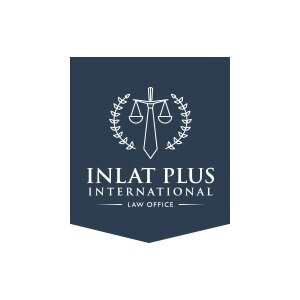Best Antitrust Lawyers in Latvia
Share your needs with us, get contacted by law firms.
Free. Takes 2 min.
Or refine your search by selecting a city:
List of the best lawyers in Latvia
About Antitrust Law in Latvia
Antitrust law in Latvia is designed to promote fair competition in the market and prevent anti-competitive practices. The key legislation governing antitrust in Latvia is the Competition Law, which aims to protect consumers, promote economic efficiency, and ensure a level playing field for businesses.
Why You May Need a Lawyer
You may need a lawyer in antitrust cases if you are facing allegations of anti-competitive behavior, need advice on merger control regulations, or need assistance in navigating complex competition law issues. A lawyer can help you understand your rights and obligations under the law and provide guidance on how to proceed.
Local Laws Overview
In Latvia, the Competition Council is responsible for enforcing antitrust laws and investigating potential violations. Key aspects of Latvian antitrust law include prohibitions on anti-competitive agreements, abuse of dominant position, and mergers that may harm competition.
Frequently Asked Questions
1. What types of agreements are prohibited under Latvian antitrust law?
Latvian antitrust law prohibits agreements that restrict competition, such as price-fixing, market sharing, and bid-rigging.
2. What is considered an abuse of dominant position in Latvia?
An abuse of dominant position occurs when a company with significant market power engages in practices that harm competition, such as predatory pricing or exclusive dealing.
3. Are there any exemptions to the competition law in Latvia?
Yes, certain agreements may be exempt from the competition law if they contribute to economic efficiency and benefit consumers.
4. What is the role of the Competition Council in Latvia?
The Competition Council is responsible for enforcing antitrust laws, investigating potential violations, and promoting competition in the market.
5. What are the penalties for violating antitrust laws in Latvia?
Violations of antitrust laws in Latvia can result in fines, orders to cease anti-competitive practices, and other enforcement actions.
6. Do I need to notify the Competition Council before completing a merger in Latvia?
Yes, mergers that meet certain thresholds must be notified to the Competition Council for approval before they can be completed.
7. How can I file a complaint with the Competition Council in Latvia?
You can file a complaint with the Competition Council by submitting a written complaint detailing the alleged anti-competitive behavior.
8. Can individuals bring private antitrust lawsuits in Latvia?
Yes, individuals who have been harmed by anti-competitive practices may bring private antitrust lawsuits to seek damages.
9. How long does it take for the Competition Council to investigate a potential antitrust violation?
The length of time it takes for the Competition Council to investigate a potential antitrust violation can vary depending on the complexity of the case.
10. Are there any leniency programs for companies that cooperate with antitrust authorities in Latvia?
Yes, companies that cooperate with the Competition Council and provide evidence of anti-competitive behavior may qualify for leniency programs, which can reduce or eliminate fines.
Additional Resources
For more information on antitrust law in Latvia, you can visit the Competition Council's website or contact a local law firm specializing in competition law.
Next Steps
If you need legal assistance in antitrust matters in Latvia, it is advisable to seek guidance from a qualified lawyer who can help you navigate the complexities of competition law and protect your rights.
Lawzana helps you find the best lawyers and law firms in Latvia through a curated and pre-screened list of qualified legal professionals. Our platform offers rankings and detailed profiles of attorneys and law firms, allowing you to compare based on practice areas, including Antitrust, experience, and client feedback.
Each profile includes a description of the firm's areas of practice, client reviews, team members and partners, year of establishment, spoken languages, office locations, contact information, social media presence, and any published articles or resources. Most firms on our platform speak English and are experienced in both local and international legal matters.
Get a quote from top-rated law firms in Latvia — quickly, securely, and without unnecessary hassle.
Disclaimer:
The information provided on this page is for general informational purposes only and does not constitute legal advice. While we strive to ensure the accuracy and relevance of the content, legal information may change over time, and interpretations of the law can vary. You should always consult with a qualified legal professional for advice specific to your situation.
We disclaim all liability for actions taken or not taken based on the content of this page. If you believe any information is incorrect or outdated, please contact us, and we will review and update it where appropriate.
Browse antitrust law firms by city in Latvia
Refine your search by selecting a city.











